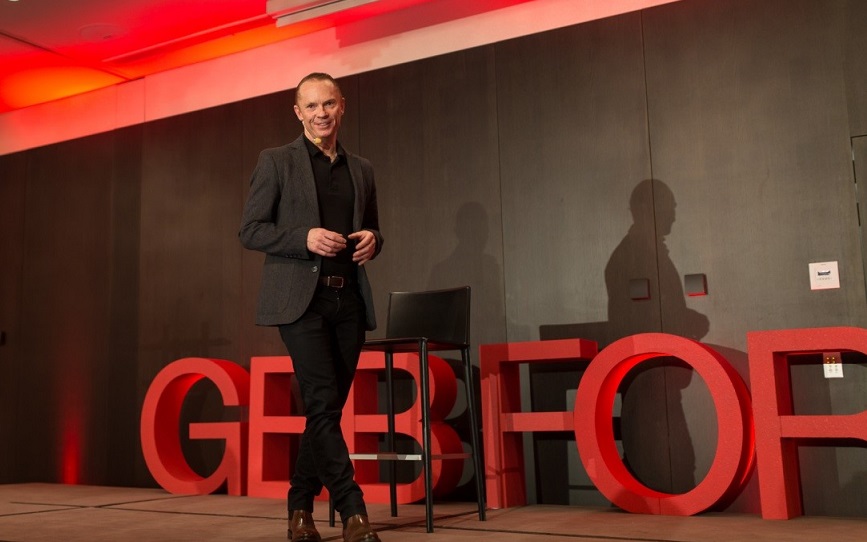GEB Forum attendees met one of the world’s top 25 thinkers according to the Business Strategy Review, and a management guru according to the Financial Times
Prof. Jamie Anderson, business strategist and educator renowned for his work on leadership, organisational creativity and strategic innovation, shared his new provocative research on lifework. What’s in it for your personal and professional development?
Find it below in this exclusive interview held with Prof. Anderson ahead of his intervention at the GEB Forum.
What are your expectations?
It is the first time I present my new research on life-work to employee benefits professionals, and I believe it is very timely. The nature of work is changing dramatically: benefits and HR professionals have to deal with major shifts and be able to evolve with them.
What are the major transformations in the way we work?
I would highlight two major changes. The first one is the impact of new technologies, which allow people to find new ways to interact with their organisations and to collaborate with colleagues.
The second one is the change in how people are thinking about success. When I started as business educator in the early ‘2000s, success was pretty much determined by salary, status and responsibilities. In particular after the financial crisis, more and more people question what success means at both organisational and individual level.
How can organisations cope with these new trends?
For HR and benefits managers may not be enough anymore to put policies and procedures in place. They need to think strategically about the way they are advising people in their careers and also addressing work-life balance needs.
What is life-work about?
I will share with you my personal career story. In my late ‘30s I was in a position of success and prestige. But I was not happy, and I did not get the support I needed, not just for my success but also for the wider spectrum of needs and desires I had in my life. In the end I chose to become self-employed and entrepreneur. I chose this path not to get more money or more status, but just to seek for happiness and to be fulfilled in other areas which could be related to family, sport or any other passion.
I would like to encourage people in the room to reflect on their role in helping people not just increase their productivity level but also achieve success in their lives overall.
So organisations should look at their employees’ happiness as a way to retain them and enhance their performance?
Absolutely yes, we need to think more creatively about the way we engage employees.
The industrial age culture (we need to be productive every day, exactly from 9.00 to 5.00) is not realistic anymore, nor appropriate to compete in increasingly complex economies.
This approach is also detrimental to an organisation capacity to compete for talents. Many high potential professionals choose start-up environments and would never go into big organisations exactly not to deal with inflexible and not smart policies.
In my work advising many leading organisations, I can still sense resistance to flexible arrangements. Older generations tend to be more distrusting in allowing people to work the way they want.
What are the risk for an organisation of making their employees unhappy or cynical?
It is very dangerous for an organisation not to think about the risk of making employees unhappy (and keeping them in their payroll). Disengaged people tend to lack energy and focus, they are not enough purposeful and entrepreneurial, they are not particularly willing to collaborate and they have no interest in driving the business forward (they just keep doing the same every day).
Needless to say, this attitude reduces productivity, innovation and creativity of an organisation.
How leadership can contribute to fostering creativity?
Hierarchy gets in the way of collaboration and innovation. A new not hierarchical approach to leadership is needed in our modern business world to face complexity and rapid changes.
So leaders should get rid of their ego, stop thinking they are better than others, and understand they need to get things done with and through other people. And they will not get it done with command and control, but with what I call active orchestration. They will drive focus and directions ahead, and they will manage social dynamics to favour collaboration. They will need to roll up their sleeves and get involved, to understand and get into complex situations much more actively, asking people to bring them all the information they need.
A final message to the people in the room?
I will share my personal story and I hope I will connect to each of you as a person too. It is not only about your key role in enabling other people success, but also about sharing common reflections and concerns about our own personal and professional fulfillment. How these two can go together and support each other.
